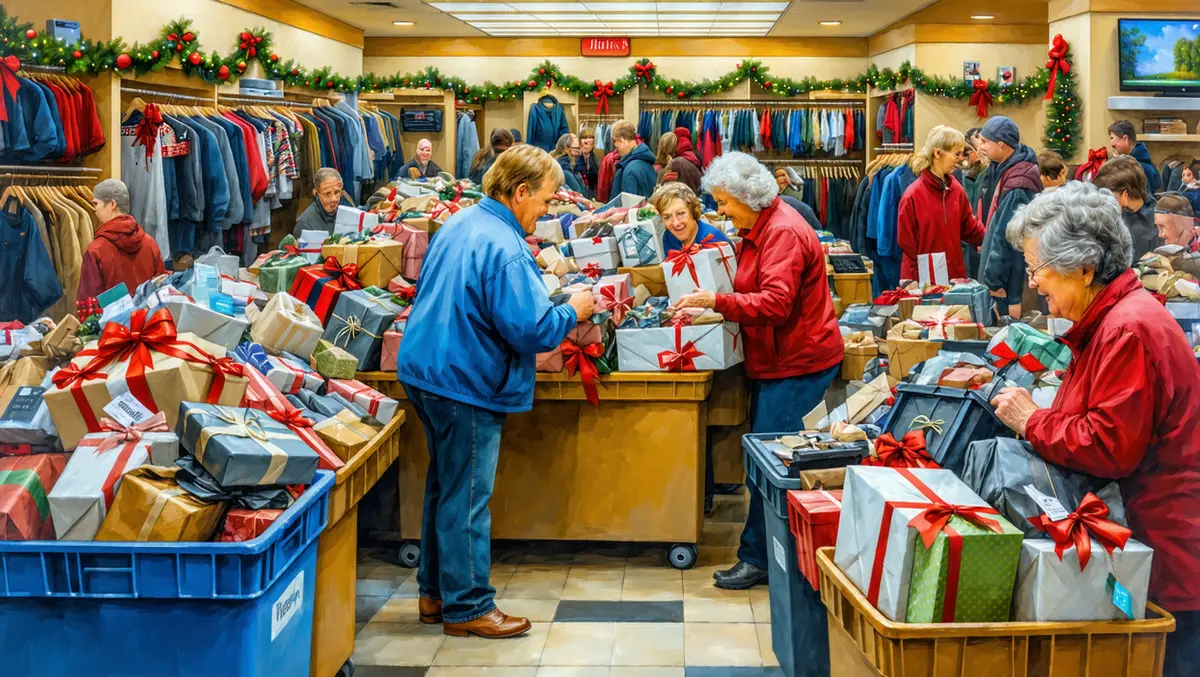
UK consumers to return GBP £1.5 billion Christmas gifts
British consumers are expected to return £1.5 billion worth of Christmas gifts this year, according to a study by Manhattan Associates.
The research has indicated that approximately 67 million unwanted presents will be returned following the festive period, posing significant logistical and financial challenges for retailers. Craig Summers, Vice President Northern Europe & MEA at Manhattan Associates, remarked, "Efficient returns management is vital during peak holiday season as businesses balance the need for streamlined processes with maintaining customer satisfaction."
According to the study, 77% of consumers in the UK admit to returning gifts received during Christmas. On average, each individual is expected to return 1.26 gifts, with an average value of GBP £22.22 per gift. The findings further revealed that common reasons for returning gifts include poor fit and receiving duplicate gadgets.
Notably, 23% of British consumers prefer to exchange their unwanted gifts, while 21% choose to donate them to charity shops. Meanwhile, 19% of recipients regift to others, 17% store gifts away, and 12% opt for a full refund. Popular categories for returns include clothing, which accounts for 42% of returned items, followed by shoes and footwear at 21%, cosmetics at 16%, and jewellery or watches at 15%.
Customer dissatisfaction with the returns process remains a critical issue. Thirty-nine per cent of respondents cited extended refund wait times as a major concern, and 33% expressed frustration over unclear returns policies. Such dissatisfaction can lead to lasting consequences for retailers, as evident by 40% of consumers avoiding brands after a negative return experience. "A seamless and customer-centric return experience is essential for building trust and fostering long-term relationships," Summers added.
The challenge appears particularly acute among Generation Z consumers, who reportedly returned gifts at a higher rate (65%) compared to only 19% from those aged 65 and over in the previous year. Additionally, the environmental impact of the returns process is an increasing consideration for Gen Z, placing additional demands on retailers to address sustainability concerns.
Retailers are under pressure to manage the complexities of returns while maintaining profitability. The necessity to reconcile easy return processes with logistical constraints underscores the need for investment in advanced solutions, as noted by Summers, "Investing in solutions such as robust reverse logistics and AI-powered customer service, coupled with clear communication and efficient processes, is crucial for retailers navigating this challenge effectively."
Empathy during the returns process also plays a significant role in consumer satisfaction. Summers explained, "There's more to returns than software and pound signs though. Retailers need to also consider the emotional aspect of returns. Customers often feel awkward or disappointed when returning gifts, and a smooth, empathetic process can make all the difference in maintaining loyalty and a positive brand experience."


